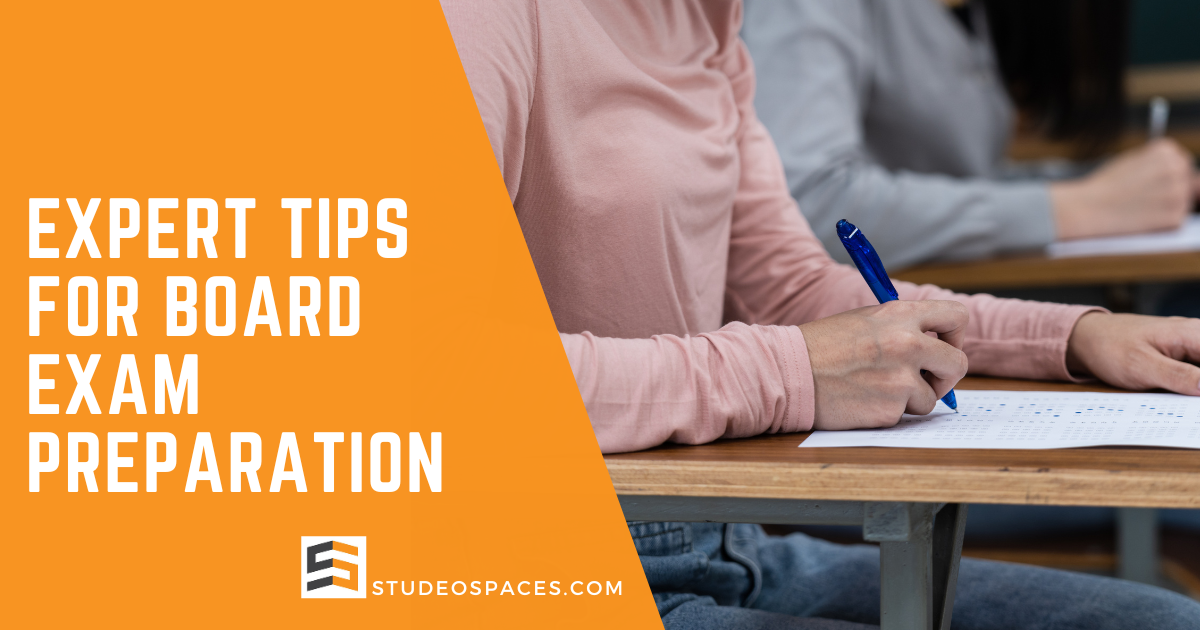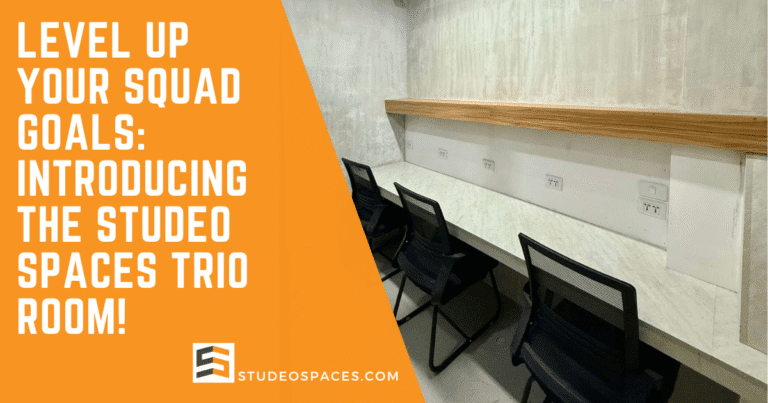
In “Expert Tips For Board Exam Preparation,” readers are guided through essential strategies to excel in their upcoming exams, from creating a structured study schedule to employing active learning techniques. To amplify the effectiveness of their study routines, the article introduces Studeo Spaces Study Hub, a premier facility in Sampaloc.
At Studeo Spaces Study Hub, students and professionals can immerse themselves in a hyper-productive environment that fosters concentration and focus. Open every day of the week, this dedicated space provides the perfect setting to achieve peak performance and reach that coveted state of flow, ensuring that individuals are fully prepared to ace their exams. Have you ever felt overwhelmed while preparing for board exams?
Whether it’s the sheer volume of topics to cover or the pressure to perform well, preparing for these critical tests can be daunting. But fear not, as we are here to share expert tips that will help streamline your study process and make your board exam preparation more manageable.
Understanding the Importance of Effective Preparation
Adequate board exam preparation is crucial for various reasons. It ensures you cover all necessary material and builds your confidence. Well-prepared students tend to perform better because they are less anxious and more familiar with what to expect.
Establishing a Study Plan
Creating a detailed study plan helps you allocate study time efficiently across subjects. Here are some steps to guide you:
- List Subjects and Topics: List all the subjects and topics you must cover. This will give you an overview of your responsibilities.
- Prioritize Important Topics: Identify which topics carry more weight or are more difficult for you. Prioritize these in your schedule.
- Set Realistic Goals: Break down the syllabus into manageable sections and set achievable goals within your timeframe.
Utilizing Study Techniques
Effective study techniques can significantly boost your retention and understanding. Here are a few popular methods:
- Active Recall: This involves actively remembering information without looking at your notes. It improves memory retention.
- Spaced Repetition: Spacing out your study sessions and revisiting topics over time helps reinforce learning.
- Pomodoro Technique: Break your study time into intervals, usually 25 minutes of focused study followed by a 5-minute break. This helps maintain concentration.
The Role of Practice Tests
Practice tests are a vital component of board exam preparation. They help you familiarize yourself with the format and timing of the actual exam, reduce test anxiety, and identify areas where you need further study.
The Unique Advantages Offered by Studeo Spaces Study Hub
At Studeo Spaces Study Hub, they believe in creating a space that fosters a state of hyper-productivity and concentration known as the “flow state.” This premier destination in Sampaloc is meticulously designed to help individuals unleash their focus and unlock their full potential.
Why Choose Studeo Spaces Study Hub?
Studying for exams requires a conducive environment, free from distractions. Studeo Spaces Study Hub offers several unique advantages:
- Optimal Study Environment: Unlike traditional co-working spaces, the facility is tailored for studying or working. It promotes peak performance and productivity.
- Ever-Accessible: Open every day, including weekends and holidays, from 8:00 AM to 3:00 AM, you can access this space whenever you need it.
- Convenient Location: Situated at the corner of Dapitan and Dela Fuente Streets in Sampaloc, Manila, it’s easily accessible and convenient for students.
Their tagline, “Get Into the Flow,” summarizes their commitment to helping individuals reach a state of hyper-focus and productivity. Whether preparing for exams or looking to enhance your professional performance, Studeo Spaces Study Hub provides the perfect environment for you to thrive.
Preparing for Exams: Subject-Specific Tips
Different subjects require different preparation strategies. Here are some tips tailored for common subjects:
Mathematics
Mathematics is a subject that requires practice and conceptual understanding. Here’s how to approach it:
- Understand Concepts: Focus more on understanding the concepts than rote learning.
- Practice Regularly: Solve different types of problems to gain familiarity.
- Review Mistakes: Learn from your mistakes during practice to avoid them in the exam.
Science
Science subjects often involve both theory and practical knowledge. Here are some tips:
- Use Diagrams and Charts: Visual aids can help you understand complex concepts more quickly.
- Conduct Experiments: If possible, conduct small experiments to reinforce theoretical knowledge.
- Summarize Notes: Create summary notes for quick revision.
Humanities
Subjects in the humanities often require extensive reading and writing. The following tips can help:
- Take Detailed Notes: While reading, take notes to summarize key points.
- Practice Writing Essays: Develop essay-writing skills by practicing often.
- Engage in Discussions: Discuss topics with peers to explore different perspectives.
Mental and Physical Well-being
Preparing for board exams isn’t just about studying. It’s equally important to take care of your mental and physical health.
Managing Stress
Exams can be stressful, but managing stress is crucial for success:
- Practice Mindfulness: Techniques like meditation and deep-breathing exercises can help you stay calm.
- Stay Positive: Maintain a positive outlook and remind yourself of your strengths.
Physical Health
Your physical health can significantly affect your mental clarity and energy levels:
- Regular Exercise: Incorporating exercise into your routine helps improve focus and reduces stress.
- Healthy Diet: A balanced diet rich in nutrients supports cognitive function.
- Adequate Sleep: Ensure you get sufficient sleep, especially before the exam day.
Leveraging Study Groups and Resources
Studying in a group can offer new perspectives and make learning more interactive.
Forming Study Groups
Joining or forming study groups can be highly beneficial:
- Collaborative Learning: Discussing and explaining concepts to peers enhances understanding.
- Motivation and Support: Group members can motivate and support each other through preparation.
Utilizing Online Resources
In today’s digital world, numerous online resources can aid your exam preparation:
- Educational Websites: Websites like Khan Academy and Coursera offer valuable academic resources.
- Forums and Study Communities: Platforms like Reddit and Quora have dedicated spaces for students to ask questions and share knowledge.
- Apps and Tools: Tools like Evernote for note-taking and Quizlet for flashcards can enhance your study routine.
Crafting Your Study Schedule
An effective study schedule balances study time, breaks, and rest periods.
Time Management
Effective time management involves distributing your time in a way that maximizes productivity:
- Daily and Weekly Plans: Create daily and weekly study plans that allocate time for each subject.
- Balanced Routine: Include breaks and leisure activities to avoid burnout.
Tracking Progress
Keeping track of your progress helps you stay on track with your study schedule:
- Regular Reviews: Review your schedule regularly to ensure you meet your goals.
- Adjust as Needed: Be flexible and make adjustments based on your progress.
Conclusion
Preparing for board exams can be challenging, but it becomes more manageable with the right strategies and resources. From creating a detailed study plan and utilizing effective study techniques to leveraging study groups and maintaining a healthy lifestyle, every step you take moves you closer to success.
Remember, the environment in which you study plays a crucial role in your productivity. Studeo Spaces Study Hub offers a perfect setting to help you get into the flow and maximize your study efficiency. Whether you’re tackling complex math problems or diving into historical texts, they provide an optimal space to help you thrive.
So, start your preparation today with these expert tips, and approach your board exams with confidence and determination. Happy studying!
Frequently Asked Questions About Expert Tips For Board Exam Preparation
What is the importance of adequate preparation for board exams?
Adequate preparation is crucial for covering all necessary material, building confidence, and reducing anxiety, leading to better exam performance. Well-prepared students are more familiar with what to expect, contributing to their success.
How should I create an effective study plan for my board exam?
To create an effective study plan, you should start by listing all subjects and topics, then prioritize those that carry more weight or are more challenging. Break down the syllabus into manageable sections and set achievable goals within your timeframe, ensuring the plan is realistic.
What are some effective study techniques that can improve memory retention?
Some effective study techniques include active recall (remembering information without notes), spaced repetition (revisiting topics over time), and the Pomodoro technique (focused study intervals with short breaks). These techniques aim to reinforce learning and improve concentration.
Why is it beneficial to use practice tests when preparing for board exams?
Practice tests are essential for familiarizing yourself with the exam format and timing, reducing test anxiety, and identifying areas where further study is needed. They allow you to simulate exam conditions and pinpoint your weaknesses.
What are the advantages of studying at Studeo Spaces Study Hub compared to other co-working spaces?
Studeo Spaces Study Hub provides an optimal study environment tailored explicitly for focused work and peak performance, unlike traditional co-working spaces. It’s open every day, including weekends and holidays, and its location in Sampaloc is convenient for students, allowing for accessible and consistent study sessions.
How should I approach studying math, science, and humanities subjects differently?
For math, focus on understanding concepts, practicing solving various problems, and reviewing mistakes. For science, use diagrams, conduct experiments, and create summaries. Take detailed notes, practice essay writing, and engage in discussions in humanities. Tailoring your study approach to the subject can improve your understanding and retention.
How can I manage stress and maintain my well-being during exam preparation?
To manage stress, incorporate mindfulness techniques like meditation and maintain a positive outlook. For physical well-being, including regular exercise, maintaining a healthy diet, and ensuring adequate sleep contribute to mental clarity and energy.
How can I leverage study groups and online resources to enhance my board exam preparation?
Study groups allow for collaborative learning and offer motivation and support. Online resources like educational websites, forums, and study apps provide a wealth of information and tools to aid your study. Utilizing these can make your learning experience more interactive and comprehensive.
Studeo Spaces Quick Links
- Book a Desk / Room
- Location
- Rates
- Features and Amenities
- Business Hours
- Private Rooms
- Latest News
Stay Connected
- Facebook: https://www.facebook.com/StudeoSpaces
- Tiktok: https://www.tiktok.com/@studeospaces
- Youtube: https://www.youtube.com/@StudeoSpaces






